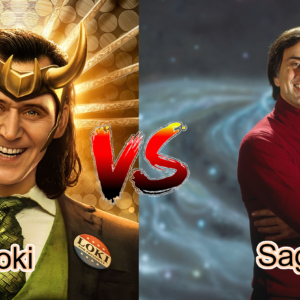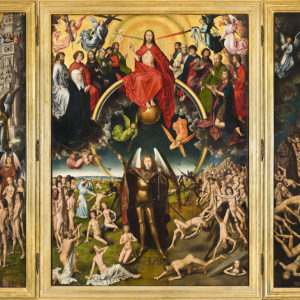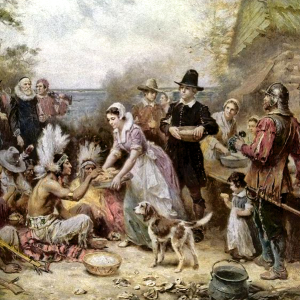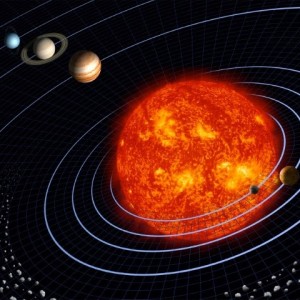The new Marvel / Disney+ series Loki raises some surprisingly-deep metaphysical and even theological questions. Along the way, it presents a convincing case for why an atheistic vision of the universe as only matter CANNOT be true.
Tag: philosophy
God & Hell: Our Infinite Hunger
Traditionally, the four Sundays of Advent were preached on the “Four Last Things” (death, judgment, heaven, and hell), so it’s a good time to ask: Is the idea of hell – an eternity of suffering apart from God – compatible with the idea of an all-good and loving God? I think that this is one of the strongest arguments against traditional Christian doctrine. I would argue that it is, but that to see this we need to see something about ourselves, and about God in relation to us, before we can see why. That’s what I’ll be exploring over the next four days. I’ll be making four major points:
1. We have an infinite craving for the good. Everything we do is in pursuit of the good;
2. Because no earthly goods are capable of satisfying our hearts, life is cruel… unless there is a good capable of satisfying the infinite longings of our hearts.
3. God, as infinite and perfect good, is the only one who can fill our hearts.
4. Eternity without God would necessarily be hellacious.
Let’s start with the first of these points…
What Makes a “Holiday”? A Theory of Festivity
What makes a holiday a holiday? What makes an event “festive”? Josef Pieper (author of “Leisure: The Basis of Culture”) explored this in a work called “In Tune with the World: A Theory of Festivity,” and it might be a good think to wonder about as we enter into the week of Thanksgiving.
Is Salvation Our Doing, or God’s?
What percentage of our salvation is our doing, and what percentage of it is God’s doing? This is a common way of approaching the question of salvation, and it’s a driving force for a lot of bad theology. For example, Steven J. Cole claims that Roman Catholicism “teaches that in order to gain enough merit for salvation, we must add our good works to what Christ did on the cross.” That’s a common misunderstanding: since Catholics believe human cooperation is necessary, that must mean we’re reducing God’s credit from 100% to something lower, right? And it’s ultimately for this reason that Martin Luther and later Protestants (most famously Calvinists) will argue that man’s free will in the realm of salvation is basically an illusion: we provide 0% to salvation. Why? To ensure that God gets 100%.
But Who Created God?
A surprisingly common objection raised by atheists against the idea of God is “who created the Creator?” The argument asks, essentially, why theists think that creation needs a Creator, but the Creator doesn’t. For example, Lawrence Krauss asks, “the declaration of a First Cause still leaves open the question, ‘Who created the creator?’ After all, what is the difference between arguing in favor of an eternally existing creator versus an eternally existing universe without one?”
Can God Be Known?
Can we actually know anything about God? This is one of the most fundamental questions, and many people, particularly agnostics, will say “no.” The argument tends to go something like this: God, if there is a God, is so far removed from human experience and knowledge that there’s nothing that we can say about Him (or Her… Continue reading Can God Be Known?
Abortion, Souls, and the Atheist Conundrum
Do You Need God to Know That Abortion is Wrong? That’s a question that I asked recently here and over at Strange Notions. I was prompted by two things: on the one hand, a series of articles defending the idea that we can be moral without God; and on the other, articles like this one, suggesting that… Continue reading Abortion, Souls, and the Atheist Conundrum
Our National Sin: What Racism Reveals About God and Man
Jean Leon Gerome Ferris, The First Thanksgiving (1915) There’s a side to Thanksgiving with which you might not be familiar: historically, this was a day in which Americans were encouraged to call upon God both in gratitude for His blessings, and to ask mercy for our sins.† We see seeds of this in Lincoln’s 1863… Continue reading Our National Sin: What Racism Reveals About God and Man
Moral Relativism, Conscience, and G.E.M. Anscombe
What should we make of the idea that there’s no such thing as objective morality: that morals are just determined by cultures, or by individuals? That’s at the heart of a question that I address in the essay below. It’s taken from a draft of a midterm that I wrote dealing with moral relativism — more… Continue reading Moral Relativism, Conscience, and G.E.M. Anscombe
Nothing’s the Matter with Atheistic Materialism
The central problem with atheistic materialism is nothing, really. Metaphysical nothing, to be exact. The Solar System (not to scale) Any worldview, including atheism, should be able to give some sort of coherent answer to the rudimentary question of why the universe exists. I don’t mean “why does this universe exist rather than another?” I… Continue reading Nothing’s the Matter with Atheistic Materialism



![Michelangelo, Creation of Adam (1512) [from the Sistine Chapel ceiling]](http://shamelesspopery.com/media/2017/09/Adams_Creation_Sistine_Chapel_ceiling_by_Michelangelo_JBU33-300x300.jpg)




